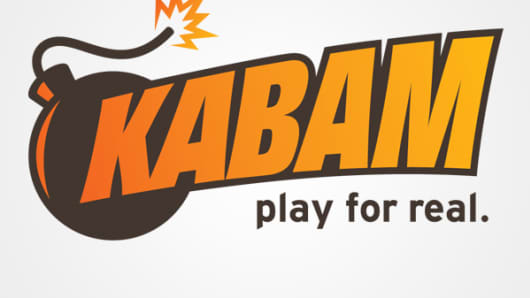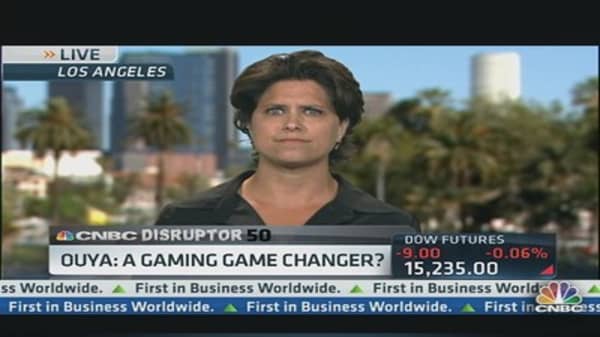The latest news on the CNBC Disruptor 50 companies upending the status quo in the markets:
The gaming company Google is betting on: It isn't Zynga
Google Ventures has upped its bet on private gaming company Kabam, and mobile strategy is a big part of the wager.
Being early into mobile is seen as big advantage for Kabam. Zynga has made a move to mobile of late, but Kabam has been going mobile for two years already. It now offers all seven of its own titles along with some from third-party developers on Android and iOS.
Google Ventures was among a small group of investors in a $38.5 million secondary equity deal completed last month that allowed Kabam employees to cash out. The names of the investors were released this week.
(Read more: Crowdfund this: Medical Devices)
Google Ventures general partner Joseph Kraus explained his bet this week in an interview with The Wall Street Journal, saying that "Kabam has successfully made the transition to mobile at a time when many previously Facebook-oriented gaming companies haven't."
The other investors in the Kabam employee share deal were Founders Circle Capital, Pinnacle Ventures and Canaan Partners.
Kickstarter: the last resort, or first option, for indie filmmakers?
Always wanted to be a movie producer? Kickstarter may be the answer.
Spike Lee turned to the crowdfunding site for his latest project—something about humans addicted to blood— and set a goal of $1,250,000 by Aug. 21.
Lee surpassed that goal earlier this past week, ahead of the project fundraising deadline, raising $1,315,396 from 5,632 backers.
The project is simply called "The Newest Hottest Spike Lee Joint."
(Read more: The booming business of 3-D printing)
How to succeed on CircleUp
SmartyPants, a maker of gummy vitamins for kids and adults, raised $2.59 million in seed funding, part of the financing in the form of the largest fundraising to date on crowdfunding site CircleUp.
A variety of factors contributed to the crowdfunding success. The company had year-over-year sales growth of 250 percent. It focuses on the kinds of things people can buy at the grocery or at a drugstore—CircleUp requires investors to receive samples of such products and angel investors responded favorably—and the company has deals lined up with major retailers and distributors. It also promised to use funds to accelerate national expansion of the brand.
Foursquare's real value: Locating companies to buy its data
Location-based start-up Foursquare may be a big beneficiary of Google's billion dollar Waze acquisition.
The most lucrative stream of revenue in Foursquare's future may be monetizing data about venues and locations that it has collected from millions of check-ins throughout its roughly four-year lifetime. The company is in talks with Yahoo to partner for the company's location data, according to BuzzFeed.
(Read more: Why Google's Chromecast isn't an Apple killer, yet)
Investors think Uber worth $3.5 billion
Some big name investors are betting that car service Uber is worth $3.5 billion.
TPG made an investment of $88 million, according to a filing in the state of Delaware. Google Ventures has made an investment of about $250 million, AllThingsD reported, though the investment was not detailed in the filing. Existing investor Benchmark Capital also participated in the recent fundraising, which totaled $350 million, and estimated the alternative car service company's valuation at the $3.5 billion mark.
Google made its investment after its CEO Larry Page met with Uber CEO Travis Kalanick, according to the AllThingsD report.





